Charlie Hebdo attack: Hundreds of elite armed police comb woodland as search continues for two Paris shooting suspects
Two men were last seen driving towards Paris on the N2 trunk road
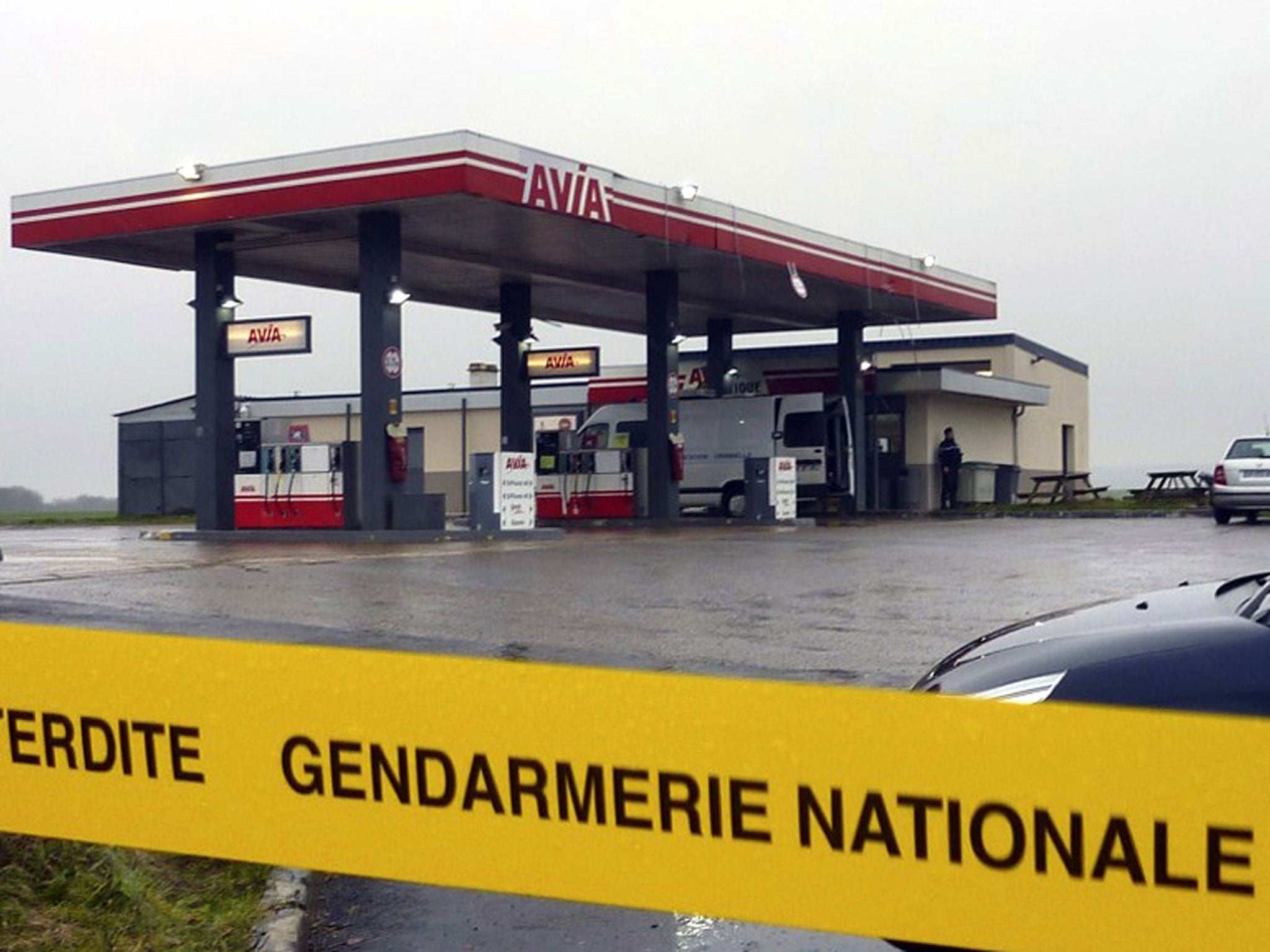
Your support helps us to tell the story
From reproductive rights to climate change to Big Tech, The Independent is on the ground when the story is developing. Whether it's investigating the financials of Elon Musk's pro-Trump PAC or producing our latest documentary, 'The A Word', which shines a light on the American women fighting for reproductive rights, we know how important it is to parse out the facts from the messaging.
At such a critical moment in US history, we need reporters on the ground. Your donation allows us to keep sending journalists to speak to both sides of the story.
The Independent is trusted by Americans across the entire political spectrum. And unlike many other quality news outlets, we choose not to lock Americans out of our reporting and analysis with paywalls. We believe quality journalism should be available to everyone, paid for by those who can afford it.
Your support makes all the difference.The two brothers believed to be responsible for Wednesday’s terror attacks in Paris remain at large as the search of a vast forest where they were thought to have sought sanctuary enters its third day.
Overnight, Parisians again took to the streets of their city to watch the lights go out on the Eiffel Tower in an unprecedented display of outrage and unity.
As the suspected mass killers Chérif and Said Kouachi continued to evade a huge manhunt, the millions who reacted with horror, then fear, then defiance, to the attack on the satirical magazine Charlie Hebdo refused to be cowed by another day of violence.
As the lights went out on Paris’s most famous landmark, hundreds of armed police were combing woodland and fields outside a small town to the capital’s north-east. Military helicopters circled overhead in an operation to pinpoint the suspects who had eluded police for more than a day.
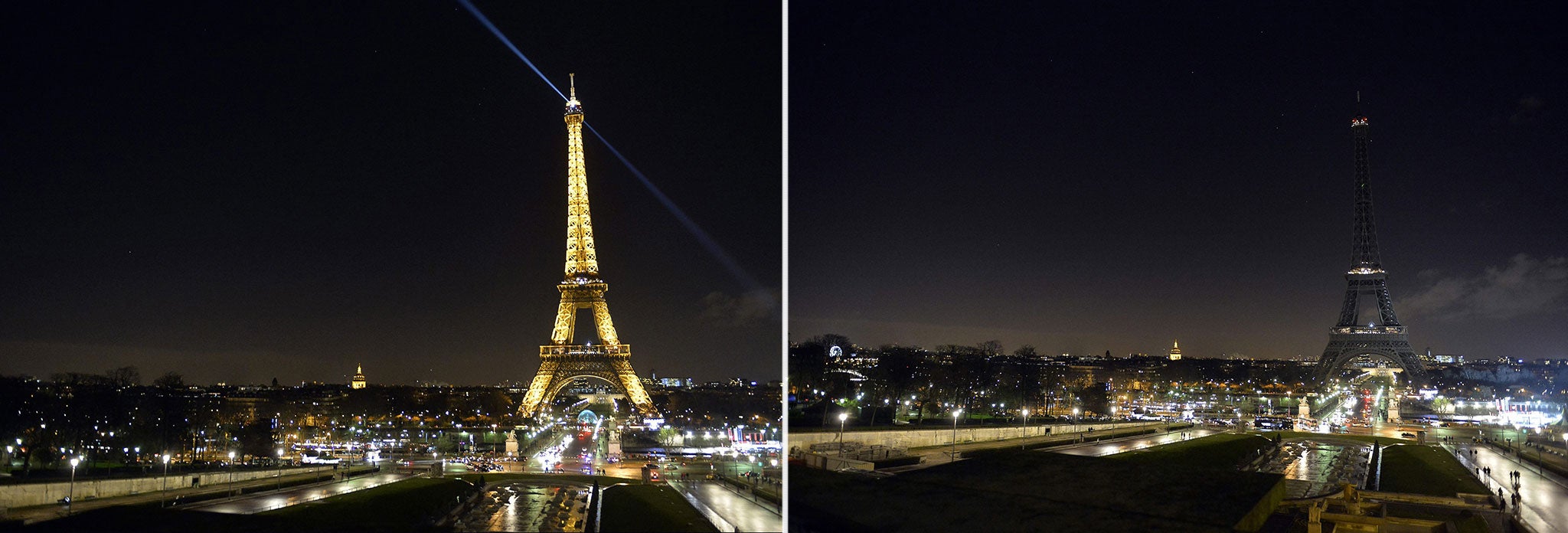
After nearly 24 hours without a confirmed sighting of the brothers following the assault in central Paris which left 12 dead, the biggest counter-terrorism operation in recent French history moved its focus to the 5,000-strong community of Crépy-en-Valois after the brothers broke cover and held up a petrol station on one of the main routes from the capital.
Staff at the Avia service stop in Villers Cotterets in the Aisne region reported seeing rocket propelled grenades and assault rifles in the back of the Kouachis’ stolen grey Renault Clio as they were forced to fill its tank at gunpoint at about 10.30am (9.30am GMT).
One resident said it appeared that police believed the men may have fled into the nearby Foret de Retz - a vast woodland measuring 13,000 hectares. A homeowner, who like hundreds of other residents had been ordered by police to stay inside and lock all doors, said: “The police arrived at 5pm and ordered us to stay indoors, lock up and close the shutters. I’m a bundle of nerves.”
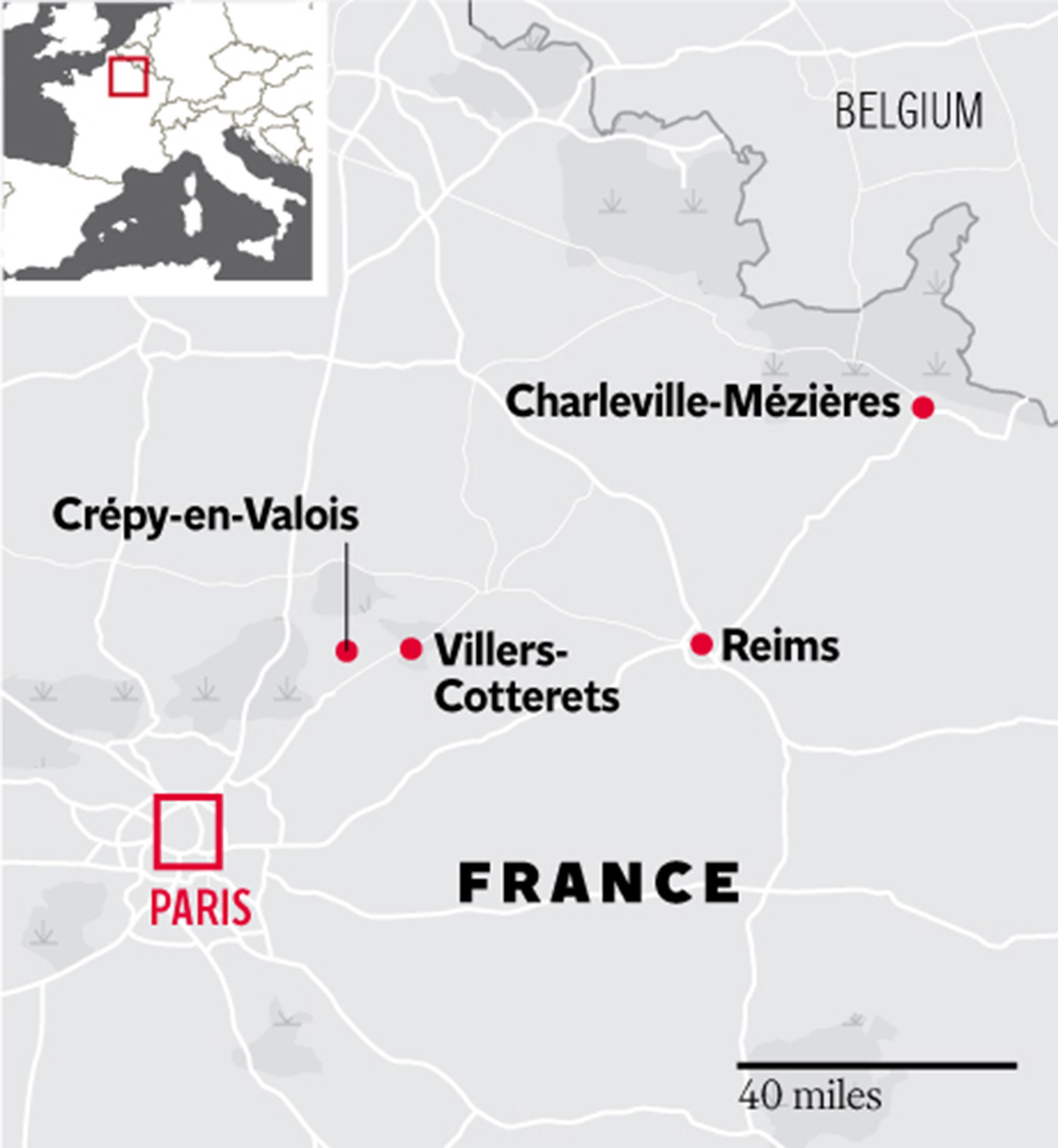
The potential endgame to the Charlie Hebdo shooting came after France suffered a second day of terrorist bloodshed as it entered three days of national mourning for the atrocity which left eight journalists dead at the satirical weekly, including its editor, and two police officers.
A female police officer suffered fatal injuries when a gunman, wearing a bulletproof vest and armed with a pistol and an automatic weapon, opened fire on her and a colleague in Montrouge, a southern suburb of Paris, shortly before 9am (8am GMT) before fleeing on foot. The dead officer was named as Clarissa Jean-Philippe.
The French authorities said the shooting was being treated as a “terrorist act” but no formal link had been identified with the Charlie Hebdo killings. The second officer was seriously injured. Two people were tonight being held in connection with the incident.
The suspected copycat attack occurred as France came to a standstill to observe a minute’s silence at midday and the bells of Notre Dame Cathedral in Paris tolled in memory of the victims of the Charlie Hebdo killing.
The lights on the Eiffel Tower were dimmed and flags were flown at half-mast across the country as politicians praised the spirit of defiance which saw 100,000 people take to the streets of French cities on Wednesday night to reject the actions of the attackers with the message “Je Suis Charlie”.
But as the spirit of unity flourished, so too did the first signs of a backlash against France’s Muslim population, the largest in Europe, after at least five serious attacks aimed at mosques and businesses. Dummy grenades were thrown at a mosque overnight in Le Mans, western France, and a Muslim family were shot at in the car in the Vaucluse region of southern France.
The Prime Minister Manuel Valls said that the “real France” was in the dignity and defiance of the demonstrations not in these scattered acts of anti-Muslim violence.
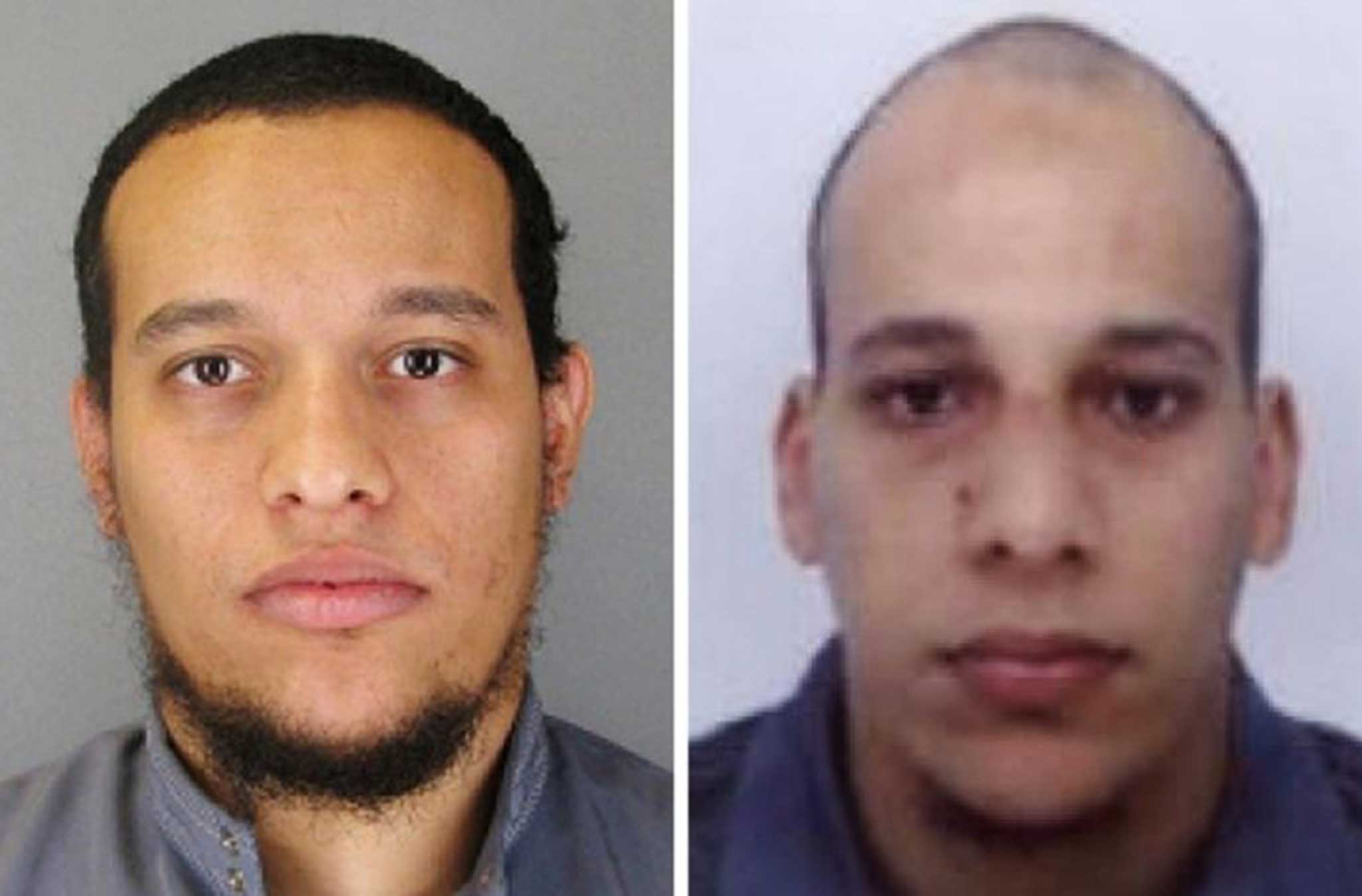
“This is a time when the nation should be saying 'no' to sweeping statements, 'no' to intolerance, 'no' to hatred and 'no' to the kind of comments which traumatise the country,” Mr Valls told RTL radio.
“France is more than (the novelist) Michel Houellebecq,” he said - a reference book published on the day of the Charlie Henbdo shootings in which Houellebecq speculates about a Muslim-run France in 2022.
The lawyer for Charlie Hebdo, known for its lampooning of radical Islam and the subject of previous attacks by extremists including a firebombing in 2011, said that its next edition would go ahead on 14 January. Rather than its usual print run of 40,000 copies it will produce one million. The former Mayor of Paris, Betrand Delanie, urged people to buy a copy as a gesture of defiance. Other French newspapers promised to help the decimated Charlie Hebdo staff produce the magazine.
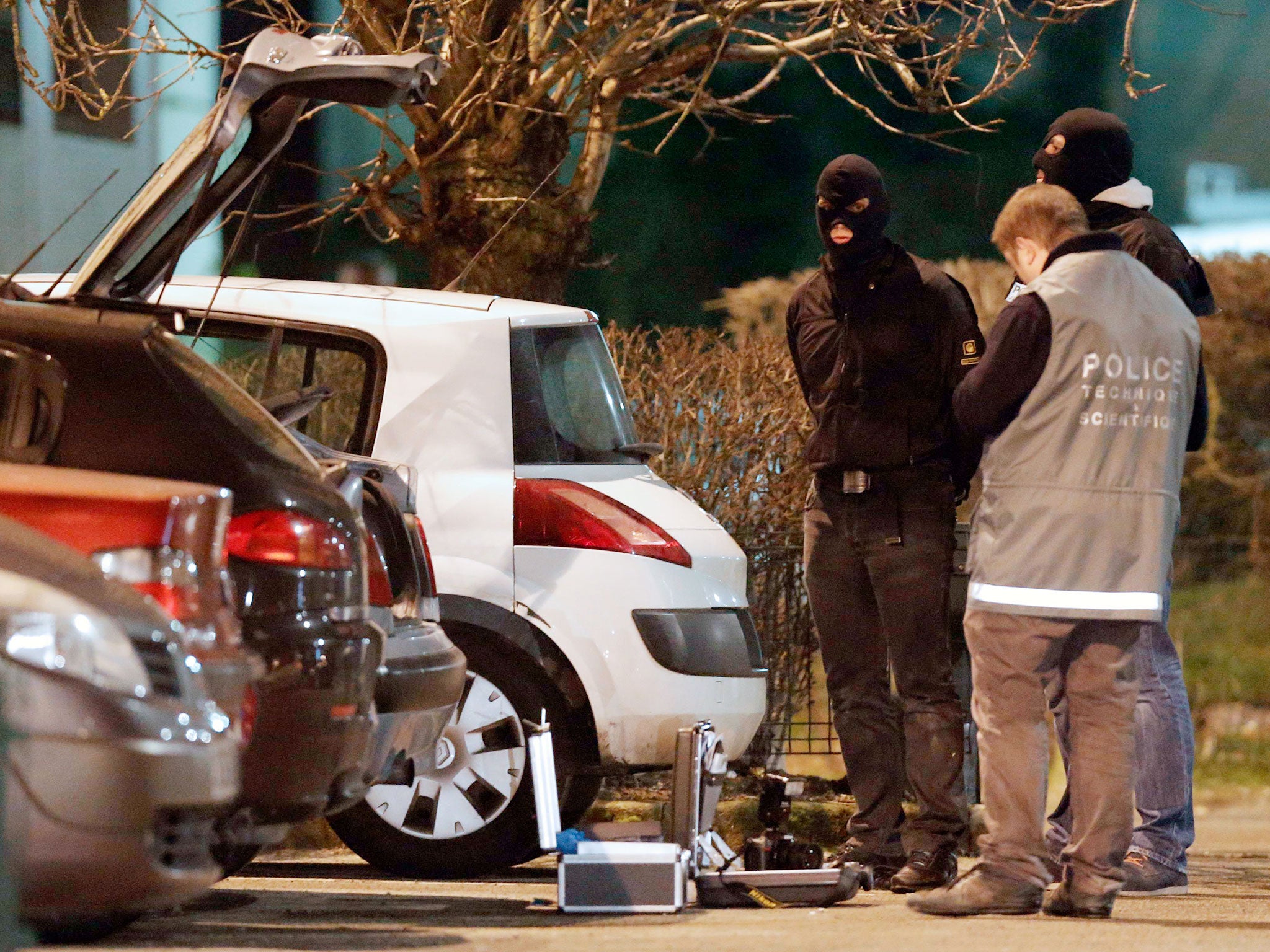
After a night in which the trail of the Cherif, 32, and 34-year-old Said appeared to have gone cold despite a number of raids in the eastern city of Reims where one of the men lived, the manhunt recommenced in a dramatic manner after the brothers pulled off the RN2 road from Paris to Soissons to steal food and petrol from the Avia filling station.
The manager reported seeing a formidable arsenal in the rear of the Clio, which was hijacked from its driver in north east Paris after the men abandoned their initial getaway vehicle - a Citroen C3 used to flee from the offices of Charlie Hebdo.
Reports that the Clio was then seen heading back in the direction of Paris led to a flurry of activity in the capital as police vehicles were stationed at the northern entrances to Paris to monitor traffic entering the city.
Police sources have cast further light on the level of preparation and the motivation of the brothers after revealing that they had left 10 Molotov cocktails in the black C3 along with a black jihadist flag and headscarf, a magnetic rooftop emergency services light and an identity card. Reports that the flag was the banner of Islamic State were later denied.
US and French intelligence believe that Said Kouachi trained in Yemen in 2011, believed to be under the auspices of Yemen-based al-Qaeda in the Arabian Peninsula, an al-Qaeda offshoot known as AQAP, officials said.
The existence of a claimed third suspect in the Charlie Hebdo killings remains unclear after the 18-year-old brother-in-law of Cherif Kouachi surrendered himself voluntarily to police, claiming he had been in school at the time of the attack.
Hamyd Mourad handed himself in on Wednesday night after seeing his name circulating on social media. He remains in custody, although initial reports suggested his alibi that he had been attending lessons had been confirmed. The French Interior Ministry said a total of nine people have been detained in relation to the killings.
The brothers Cherif and Said Kouachi are said to be “armed and dangerous”.
Chérif, 32, was already known to security officials for a previous terror conviction.
He was jailed in 2008 for three years for seeking to join extremists in Iraq as part of a jihadist group which appeared to offer instruction in how to fire the Kalashnikov rifle – the weapon used in the Charlie Hebdo attack.
The two brothers suspected of the attack are believed to be orphans of Algerian descent, raised in the city of Rennes in north west France.
Prime Minister Valls told RTL radio early this morning the two men were known to intelligence services and the fear that they could carry out another attack "is our main concern."
The murder of nine journalists, two police officers and a maintenance man by masked men has shocked France. At around 11.30am two men forcibly entered the offices of the satirical magazine, where a weekly editorial meeting was taking place, and after compelling the journalists to identify themselves opened fire. They were last seen fleeing the building.
French President François Hollande called the massacre “an act of exceptional barbarism," as British Prime Minister David Cameron, German Chancellor Angela Merkel and US President Barack Obama also condemned the actions of the attackers.
Join our commenting forum
Join thought-provoking conversations, follow other Independent readers and see their replies
Comments